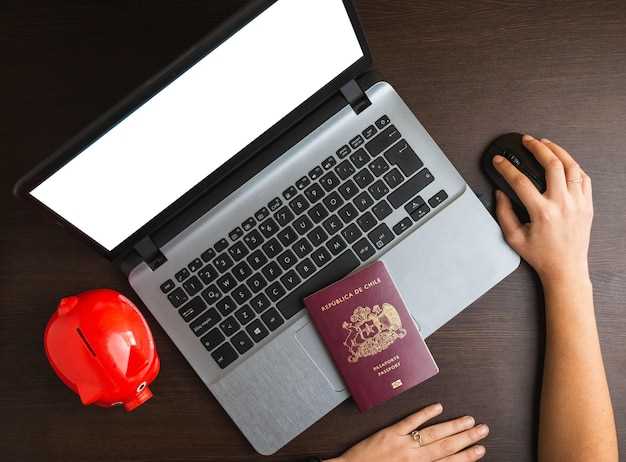
Exploring the world of freelance opportunities abroad can be an exciting and rewarding experience. However, navigating the complex landscape of legalities and regulations can be daunting for many aspiring digital nomads and remote workers.
Fortunately, obtaining the proper documentation, such as freelance visas or permits, can open up a wealth of possibilities for working in a foreign country legally and hassle-free.
Overview of Freelance Visa Requirements
In this section, we will provide an overview of the essential criteria and qualifications necessary for obtaining a freelance visa. If you are interested in working independently in another country, it is crucial to understand the specific requirements that may vary depending on the destination.
Key Factors to Consider
When applying for a freelance visa, you may need to demonstrate your professional expertise, financial stability, and the intent to contribute to the local economy. Each country has its own set of rules and regulations, so it is essential to do your research and ensure that you meet all the necessary criteria.
Documentation and Application Process
Typically, the application process for a freelance visa involves submitting various documents such as a detailed project proposal, proof of sufficient funds, and a valid business plan. Additionally, you may be required to attend an interview or provide references from previous clients to support your application.
Key points to consider before applying
Before submitting your application for a freelance visa, there are several important factors to keep in mind. It is crucial to thoroughly research the requirements and regulations of the specific country you are applying to, as these can vary significantly from one place to another.
Immigration policies are subject to change, so it is wise to stay informed about any updates or revisions that may affect your application process. Familiarize yourself with the eligibility criteria and make sure you meet all the necessary qualifications before proceeding with your application.
It is also essential to consider the financial implications of obtaining a freelance visa, including any fees or financial requirements that may be imposed. Additionally, you should be prepared to demonstrate your capacity to support yourself financially while working as a freelancer in the chosen country.
Furthermore, it is advisable to seek professional advice or assistance if you have any concerns or questions regarding the application process. Consulting with immigration specialists or legal professionals can help ensure that you are fully prepared and informed before submitting your application.
Comparison of Freelance Visa Options
Exploring the various choices available when it comes to obtaining permission to work as an independent contractor in a foreign country is essential for individuals seeking to pursue freelance opportunities abroad.
Visa Type A

One option for freelancers is Visa Type A, which offers flexibility in terms of work location and project selection. This visa may require proof of income or a business plan, but allows for self-employment without the need for sponsorship.
Visa Type B
Alternatively, Visa Type B may be more suitable for freelancers looking to establish a long-term presence in a specific country. This visa often comes with additional requirements such as a minimum income threshold or a commitment to hire local employees.
It is important to carefully compare the benefits and limitations of each freelance visa option before making a decision that aligns with your individual career goals and objectives.
Pros and cons of different visa types

Exploring the advantages and disadvantages of various types of visas for freelancers is crucial in determining the most suitable option to pursue freelancing opportunities abroad.
Pros
- Flexibility: Some visas allow freelancers to work for multiple clients or projects without restrictions.
- Long-term options: Certain visas offer the possibility of long-term residency, providing stability for freelancers.
- Access to benefits: Some visas grant access to healthcare, social security, and other benefits in the host country.
Cons
- Restrictions: Certain visas may limit the type of work freelancers can undertake or the duration of their stay in the host country.
- Complex application process: Obtaining certain visas may require extensive documentation and bureaucratic hurdles to overcome.
- Cost: Some visas come with high application fees and maintenance costs, which can be a financial burden for freelancers.
Considering these pros and cons can help freelancers make informed decisions when choosing the right visa type for their freelance career.
Step-by-Step Guide to Applying for Independent Work Permits
In this section, we will outline a detailed process for obtaining a permit that allows you to work as an independent contractor in a foreign country.
To begin the application process, you will need to familiarize yourself with the specific requirements and regulations of the country you wish to work in. Research the visa options available for freelance workers and determine which one best suits your needs.
Next, gather all necessary documents, such as proof of income, a business plan, and any required certifications or qualifications. It is important to ensure that your application is complete and accurate to avoid any delays or rejections.
Once you have your documents in order, submit your application to the relevant government agency or embassy. Be prepared to pay any application fees and undergo any required interviews or background checks.
Finally, wait for a decision on your application. Once approved, make sure to abide by all visa regulations and reporting requirements to maintain your freelance status legally.
